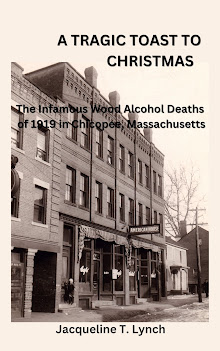Here is the 2015 season of shows for the Ivoryton Playhouse in Ivoryton, Connecticut. Please visit their website here.
Tuesday, March 31, 2015
Ivoryton Playhouse 2015 Season - Ivoryton, Connecticut
Posted by
Jacqueline T. Lynch
at
7:45 AM
0
comments
![]()
Labels: 21st Century, Connecticut, theatre
Tuesday, March 24, 2015
Ann Blyth: Actress. Singer. Star. - cover reveal
My forthcoming book on the career of actress Ann Blyth will bear this lovely cover, for which I'd like to thank most sincerely and congratulate most heartily the graphic artist. She is Constance Metzinger, one half of the Metzinger Sisters who author the classic film blog Silver Scenes. Please have a look at their blog and you'll be regular customers.
The cover above will be on both the eBook and the print version, but the print book will also have another photo gracing the back. This one:
And in between, many photos from her film and stage appearances, some of which you will have never seen.
The book will be published June 18th. I'll be posting with updates from time to time here, and most especially on my Another Old Movie Blog.
**************
Just a reminder that I'll be at the Indian Orchard Branch Library (Springfield, Massachusetts) at a book signing with a varied selection of my books, fiction and nonfiction, for sale -- this coming Saturday, March 28th, from noon to 2:00 p.m. The address is 44 Oak Street. If you have the time to stop by, I'd love to meet you and have a chat.
Posted by
Jacqueline T. Lynch
at
7:44 AM
0
comments
![]()
Labels: 20th Century, 21st Century, literature, off topic
Tuesday, March 17, 2015
St. Patrick's Day 1920s Theatricals - Holy Name Church, Chicopee, Massachusetts
The Annual St. Patrick’s Show was
a fundraiser of the kind seldom seen anymore: a community theatre, in this
case, a church drama club, whose aspirations went no further than homemade
costumes and props in the church hall, a show put on by friends and neighbors,
and a bit of the luster of show biz for the price of a 50-cent ticket.
And
Billy Disappeared
was a comedy put on St. Patrick’s week at the Holy Name Hall on South Street,
Chicopee, Massachusetts, in 1923. The
following year it was another comedy, Professor
Pepp, billed as “A Farcical Comedy with a College Flavor in Three Acts.” Oh, the flashy times and witty repartee of
the Roaring Twenties.
As evidenced in this page from
the program, these types of plays featured large casts, because as any community
or church theatre group knows, large casts means lots of relatives in the
audience.
In those days, it certainly meant
large Irish families.
The next year, March 1925, they
performed The Whole Town’s Talking,
which surely they must have been, over the riotous vaudevillian gusto of another
big cast made up of members of the congregation, including defectors from the choir,
Ladies’ and Men’ Sodalities, and some seniors from Holy Name High.
This tight little world on South
Street was the Holy Name of Jesus Church, founded in 1857, the oldest Roman
Catholic church in western Massachusetts, the mother church of the Springfield
Diocese. A grammar school and high
school and convent were once part of that little world. Unfortunately, the church was closed temporarily
in 2011, and continues to be closed indefinitely at this point, due to repairs
needed for structural issues. The parish
continues actively at another church around the corner, Assumption of the
Blessed Mary Church.
The thespians, their antics, and
their intermissions of Irish songs, are from another era when hokum, sentiment,
and amateur theatrics were beloved for all their imperfections, when two players
not married to each could fluster the straight-laced regular churchgoers with a
stage kiss, and when St. Patrick’s Day was a time for innocent, and entirely homemade, showmanship.
Posted by
Jacqueline T. Lynch
at
8:03 AM
0
comments
![]()
Labels: 20th Century, entertainment, holidays, houses of worship, Massachusetts, theatre
Tuesday, March 10, 2015
Watch on the Rhine and Waiting for a Theater in Springfield, Massachusetts - 1942
This Thursday on my Another Old Movie Blog, I’m going to reveal the cover of my latest non-fiction book,
Ann
Blyth: Actress. Singer. Star., on the career of film star Ann Blyth,
which will be published in June. Ann
Blyth, if you’ve read any of my blog posts last year, had a part in the prestigious
Broadway drama Watch on the Rhine by
Lillian Hellman, when she was just a girl.
That play was a colossal hit, and
after its Broadway run, it toured the country.
It came to the Bushnell Memorial Theater in Hartford 73 years ago this
evening, March 10, 1942. We mark this
occasion with a very interesting editorial by W. Harley Rudkin in the Springfield (Massachusetts) Daily News of March 14, 1942 which lauds
the performance he saw in Hartford, but also makes several observations about
why the city of Springfield, which was originally supposed to be on the list of
cities in the national tour of Watch on
the Rhine, was excluded.
Today, Springfield is undergoing
a great change—construction and reconstruction—with the impending arrival of a
casino. Mr. Rudkin’s words on the
importance of a theater to a community, the soul of a community, is well said,
and though CityStage and Symphony Hall serve playgoers today, the grand theater
Mr. Rudkin pleaded for in his editorial never materialized. Indeed, the Court Square Theater had only
another decade of life in Springfield, and the grand old vaudeville houses were
a thing of the past. The Bushnell,
meanwhile, still graces Hartford.
“Again the Big Ones Got Away; Our
Tackle was Not Adequate”
By W. Harley Rudkin
This
week just past has been a big one for Hartford, and for such Western
Massachusetts theatergoers as were able to get to the Bushnell Memorial for McBeth, and Watch on the Rhine.
The
former grossed better than $10,000 for two performances. Figures on the other are not immediately
available, but they were hanging out the SRO signs early at all three
performances.
That
is very nice, and I am happy for Hartford. It knows how to support its theater. It turns out in droves for the good, indifferent
and bad. It is a theater-conscious
community in which the potential audience is rapidly reaching such proportions
that I shall be surprised if the day does not come when major productions land
in Hartford for extended runs of two and three weeks just as they do in Boston,
Baltimore, Philadelphia and Washington.
For
Watch
on the Rhine they were everywhere but
hanging from the chandeliers, and the only reason they weren’t there is because
there aren’t any.
The
natural follow to all this, of course is—why not in Springfield? What is wrong with us? Are we lepers, but the show business persists
in feeding is crumbs most of the year with an occasional slice of cake at odd
moments? No matter how much we may pride
ourselves on our progressiveness, we are still standing at the back door of the
legitimate theater with our hat in our hand.
There
is a reason, a very definite reason.
Watch on the Rhine was slated for the city on March 11 for
matinee and evening performances under the aegis of the Playgoers of
Springfield. Instead it played two days
in Hartford. The inference is obvious. If Springfield had been so situated that it
could given the play the same contract it would have stood the same chance. And that is too bad, for a more exciting
experience could not possibly grace any theater season.
We
are restricted in our theater life because we have no theater that is adequate
to our needs. Hartford can move a play in on any day of the week and come very
close to guaranteeing the company capacity houses. That means 3000 or better. We can give them 1600 people at a time-and
they can come in only on Monday, Tuesday or Wednesday. Even at that we must negotiate with the
theater two weeks in advance of anything we want to bring in.
If
we could have the new Hepburn play, Without Love, or Candle in the Wind
tomorrow we couldn’t accept the offer. There
is too much red tape binding our hands. For anyone who wants to know what happens to
our theater season, there is the answer. We simply are not adequately equipped to bid
against communities that can double us every time. Sort of unpleasant, isn’t it?
The
answer to all this? There are several. Outside interests that might consider the city
a good theatrical venture might be persuaded to build a theater commensurate
with our needs. Some public-spirited
individual might like to perpetuate his or her name by one of the most
worth-while donations that could be made to the cultural life of any community.
There is plenty of precedent for it. Local businessmen with an eye toward public
service and the possibility of a fair return on investment might consider
building a theater. Then, and only then,
we can come out of hiding. Active
enterprise working against heavy odds has brought us what theater we have. This is the time for branching out. The road is in the ascendant. We should be ready to meet our opportunities.
Posted by
Jacqueline T. Lynch
at
7:35 AM
0
comments
![]()
Labels: 20th Century, 21st Century, Massachusetts, theatre
Tuesday, March 3, 2015
Log Drives on the Connecticut River
This photo of log men on the Connecticut River is from the Image Museum website, but looks to have been taken from a book. From about 1870 to 1915, lumberjacks drove timber from the near the Canadian border down the 300-mile trip on New England's longest river to Massachusetts sawmills, where lumber was produced for the industrial cities. The log drive was a springtime event, when the river was swollen from the melted winter snows. We'll not see a sight like that again after a long winter, but just a look at the photo may remind us, encourage us that, indeed, spring is coming even after such a winter as this one.
Posted by
Jacqueline T. Lynch
at
7:21 AM
0
comments
![]()
Labels: 19th century, 20th Century, business, Massachusetts, New England
Subscribe to:
Comments (Atom)
















